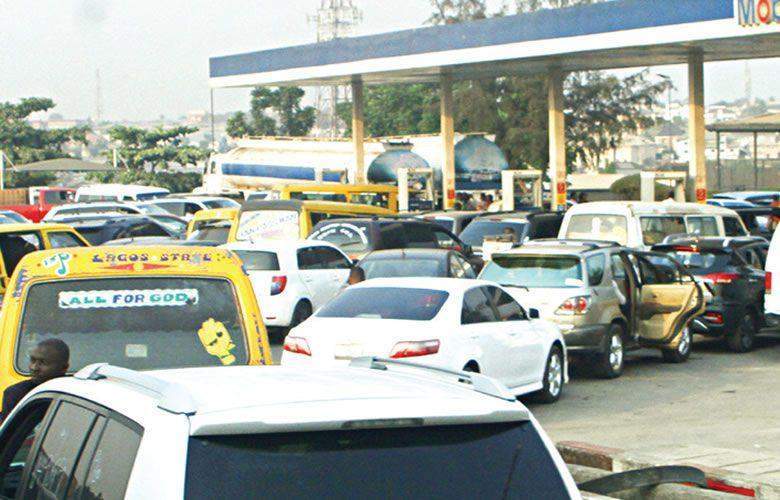As Nigerians brace up for the yuletide celebrations, the fuel situation in the country continues to worsen with filling stations shutting down and long queues cropping up at the few remaining stations still open.
One major reason for the massive fuel scarcity being experienced across the country is the removal of fuel subsidy by the Federal Government. This has led to an increase in the price of petrol to N600 per litre, as opposed to the former price of N162 per litre.
The sudden hike in fuel prices has led to a domino effect, with transportation costs increasing, the cost of food skyrocketing, and the cost of living generally becoming unbearable for the ordinary Nigerian.
This development has also made it easier for filling stations to exploit desperate motorists, thereby worsening the already dire situation.
Reports have emerged of some unscrupulous filling station owners hoarding fuel and selling at exorbitant prices to desperate buyers, while some petrol attendants have even resorted to selling fuel in jerry cans outside the filling station at even higher prices.
The situation has become so dire that some Nigerians have reportedly resorted to scooping fuel from their cars, thereby exposing themselves to the risk of fire outbreaks and other hazards.
As a result, various stakeholders are calling on the government to take urgent action to address the situation. Some have even suggested that the government should reconsider the removal of the fuel subsidy, while others are calling for the full deregulation of the downstream sector to attract more investors and competition.
In the meantime, the government has assured Nigerians that it is taking steps to address the fuel scarcity, with the Minister of State for Petroleum Resources, Timipre Sylva, stating that the government is working towards increasing fuel supply across the country.
It remains to be seen whether the government’s efforts will yield positive results, or if the situation will continue to deteriorate, leaving many Nigerians stranded in long queues and facing the harsh reality of a life without affordable fuel.
